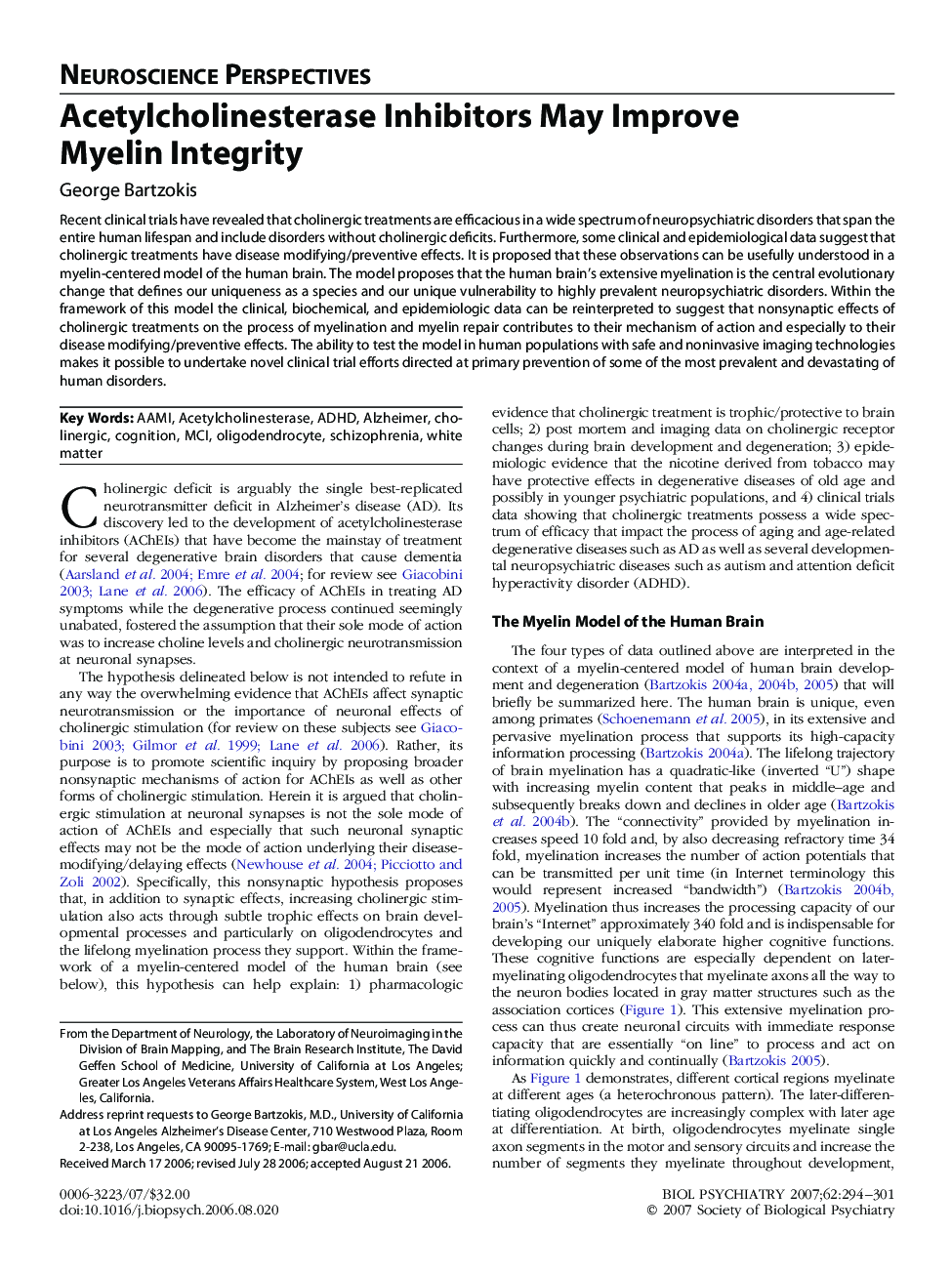| Article ID | Journal | Published Year | Pages | File Type |
|---|---|---|---|---|
| 4179580 | Biological Psychiatry | 2007 | 8 Pages |
Recent clinical trials have revealed that cholinergic treatments are efficacious in a wide spectrum of neuropsychiatric disorders that span the entire human lifespan and include disorders without cholinergic deficits. Furthermore, some clinical and epidemiological data suggest that cholinergic treatments have disease modifying/preventive effects. It is proposed that these observations can be usefully understood in a myelin-centered model of the human brain. The model proposes that the human brain’s extensive myelination is the central evolutionary change that defines our uniqueness as a species and our unique vulnerability to highly prevalent neuropsychiatric disorders. Within the framework of this model the clinical, biochemical, and epidemiologic data can be reinterpreted to suggest that nonsynaptic effects of cholinergic treatments on the process of myelination and myelin repair contributes to their mechanism of action and especially to their disease modifying/preventive effects. The ability to test the model in human populations with safe and noninvasive imaging technologies makes it possible to undertake novel clinical trial efforts directed at primary prevention of some of the most prevalent and devastating of human disorders.
